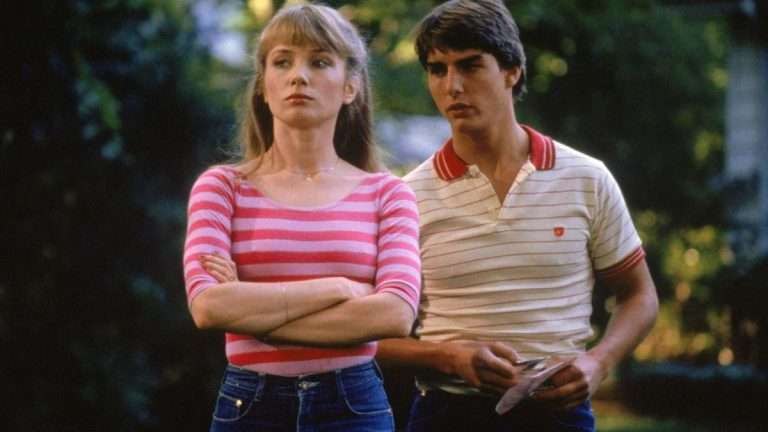The surface sheen of “Whenever I’m Alone with You” (2025), the directorial debut of Vesper Egon and Guillaume Campanacci, is so deliberately dark and familiar that it should not work at all. Set in the sunlit rot of the South of France—not far from Cannes—the film follows a suicidal Frenchman named Guillaume. He’s everything a film-school dropout’s profile picture would admire: brooding, antisocial, quoting Godard, and spilling unsolicited monologues about society’s decay. Of course, he has an ex he can’t get over. Of course, he’s unable to love.
Enter Vedrana: a woman with Sarajevo roots, dominatrix aesthetics, and a thousand untold dreams flickering behind her silence. She’s just left a stale relationship. No prizes for guessing what happens when she collides with Guillaume’s existential haze. You’ve seen this story before. Except here, the clichés wear new skin—threadbare, grainy, but sewn with a strange pulse.
As generic as this sounds on paper, no narrative is too dead to be reawakened. Campanacci and Egon—also the film’s co-writers and editors—approach their material with the wide-eyed nerve of overindulgent film students. The result is a surprisingly affecting romantic comedy, crisscrossed with surrealistic self-reference and whispery detours into fantasy. Shot with a precise, low-budget indie flair by Nicolas Devienne, the film teases us with BDSM posturing before flipping the frame to its quietest edges. It opens its legs with confidence, then suddenly closes them to murmur secrets. Minimalism, in this case, is not restraint—it’s intention. Every muted moment, every overexposed flash, demands that the audience lean in.

Dialogues barely exist unless they must. When they do, they’re filtered through ambient clatter—clinks, caws, and the sort of background noise that makes you question what’s real. At a party, we don’t hear chatter—we hear crows. Characters clink wine glasses, mouths moving, but their conversations are ghosted out. It’s audacious, sure. But it’s also committed. There’s a punk edge to how the film mutes its world.
This isn’t just aesthetic rebellion. It’s emotional structure. The film ghosts Guillaume and Vedrana’s exes by literally reducing them to silhouettes, shots of legs, or the backs of their heads. Yellow subtitles do their speaking. Their presence is visual, but not visceral—they’re memories, not people. And so, the audience sees only what the central lovers want us to see. That’s a deliberate narrative pact: we are inside their heads, and no one else’s.
What little plot exists serves as a vessel for meta-cinema. The movie collapses the act of loving into the act of creating—how building a life through art and sex mirrors the process of filmmaking itself. That the real-life couple directed, wrote, edited, and starred in this film adds layers to its introspection. At times, fantasy gives way to tender pauses of realism. At other, quiet moments dissolve into theatrical unreality. It’s indulgent as hell, and that’s exactly what saves it. Had they played safe, this could’ve been unbearable. Instead, the recklessness is oddly trustworthy.
It also makes perfect sense that Vesper and Guillaume play a version of themselves. This is not a film that could survive third-party acting. Guillaume’s performance as the sexy, brooding man-child teeters between Alain Delon homage and modern softboy melancholy. His English is sharp and strained, like someone translating his heartbreak. Vesper, on the other hand, hardly speaks—but her silences are seismic. Her character, Vedrana, channels the stillness of a classic heroine from a forgotten European new wave—femme fatale meets wounded realist. Together, they don’t speak much, but when they do, it’s enough.
There’s something delightful in the real Campanacci family playing themselves too. Their scenes have the lived-in chaos of an upper-middle-class joint family, grounding the film’s occasional flights of sexual fancy. In between surreal sex montages and melancholic dream-walking, they bring in noisy affection, reminding us that intimacy isn’t always erotic. Sometimes it’s just noisy, chatty, and familiar.

But none of this is to say the film works in totality. It’s uneven. The randomness can border on irritating, especially if you’re not tuned into its secret frequency. It hints at surrealism but doesn’t always dare to fully dive in. It wants to be weird, but occasionally second-guesses itself. There’s a version of this film that might have leaned into its absurdity further—this isn’t quite that version. And when the lovers fall in love, the absence of any broader societal structure around them starts to show. There’s no strong sense of language or institution. The film gestures at context but rarely anchors us in it.
Still, it earns your attention because it deeply respects the cinematic framework. Guillaume’s physicality becomes a reverent nod to old-world screen idols, while the film’s core romance grows from a shared love of classic cinema—and the act of watching itself. There’s no voyeuristic greed here, but there is seduction, slow and satisfying. Even its most flawed moments feel like affectionate salutes to cinema’s long-standing artifice. It is fabricated with a full heart.
“Whenever I’m Alone with You” is messy, moody, occasionally maddening, but it knows what it’s doing. It’s not interested in clarity or cohesion. It’s interested in skin, in glances, in rupture, in editing as a form of emotion. If you’re willing to let go of structure and expectation, you might just find yourself seduced, not by the story, but by the way the film asks you to look.


![Lookback on Lumet: The Hill [1965]](https://79468c92.delivery.rocketcdn.me/wp-content/uploads/2018/05/vlcsnap-error837-768x431.jpg)
![You Were Never Really Here [2018]: Masterclass in Aesthetical and Elliptical storytelling](https://79468c92.delivery.rocketcdn.me/wp-content/uploads/2018/09/You-Were-Never-Really-Here-2017-highonfilms-768x384.jpg)
![mother! [2017]: Earth’s Bleeding Heart](https://79468c92.delivery.rocketcdn.me/wp-content/uploads/2018/01/mothercover.0-768x512.jpg)

![Blind [2020] Review – A dull, inspid home invasion horror that’s hard to sit through](https://79468c92.delivery.rocketcdn.me/wp-content/uploads/2020/12/Blind-highonfilms-3-768x465.jpg)
![Love, Simon Review [2018]: Everyone Deserves A Great Love Story](https://79468c92.delivery.rocketcdn.me/wp-content/uploads/2018/08/love-simon-screenshot-1-768x432.jpg)